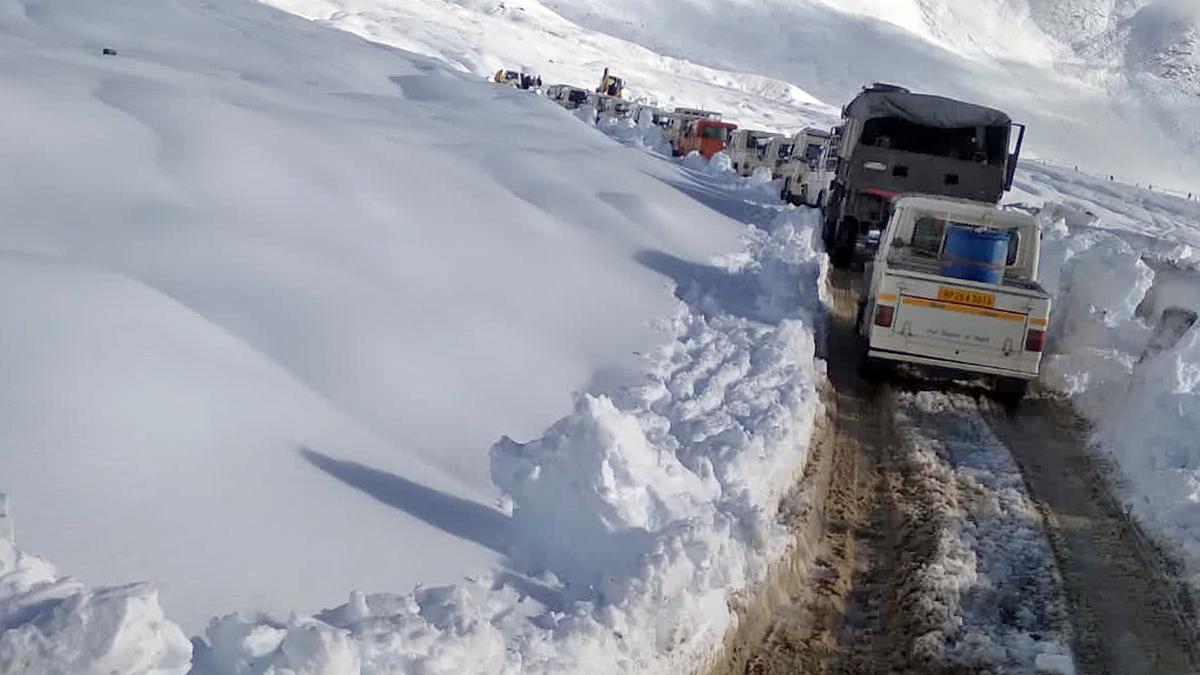
Over 70,000 stranded people, including those in snow-bound Chandertal Lake, evacuated
The Hindu
In Himachal Pradesh, 70,000 people, including 60,000 tourists, were rescued after days of relentless rains caused havoc in the state.
At least 70,000 people affected by floods in Himachal Pradesh, including those stranded at the snow-bound Chandertal Lake area in the State’s tribal Lahaul-Spiti district, have been evacuated following a rescue operation that lasted close to 60 hours, said Chief Minister Sukhvinder Singh Sukhu on Thursday.
Mr. Sukhu, who for the past three days has been travelling across the State to monitor the operations, on Thursday said the evacuated people included 60,000 tourists and local residents from the Kullu and Lahaul-Spiti districts.
He added that efforts are under way to evacuate around 10,000 individuals who are stranded at Kasol-Tirthan Valley but are reluctant to leave their vehicles behind. “To alleviate their concerns, we have assured them that their vehicles would be safeguarded. An arrangement has been made wherein the local administration will be issuing an official receipt. People can retrieve their vehicles on producing this receipt once the connecting roads are fully restored,” he said.
“The rescue convoy of about 57 vehicles reached Chandertal in Lahaul-Spiti district today early morning in sub-zero temperature to evacuate more than 250 tourists. They were being taken to Kaza in four batches, braving the chilly Kunzum pass located at a height of 4,551 metres. The rescue operation at Chandertal has ended,” he said.
The Chief Minister acknowledged the contributions of the Indian Army and the local administrations which rescued people from different parts of the State.
At least 91 people have lost their lives in rain-related incidents since the onset of the monsoon in Himachal Pradesh on June 24. The State had seen as many as 53 landslides and 33 instances of flash floods as well.
In Punjab, Chief Minister Bhagwant Mann said the situation in his State is alarming and the government is making every effort to “minimise loss of life”. Mr. Mann said that the State will not beg for any financial assistance from the Centre but will certainly send loss estimates to them. “Huge damage has been caused to the State by floods and an assessment will be made in the coming days. If the Centre helps the State it is ok. Otherwise the State is capable of managing it on its own,” the CM said.













